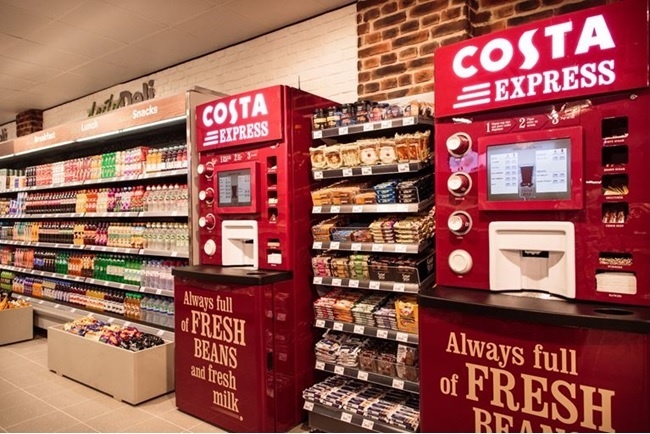October 1st saw what has been branded as “one of the biggest marketing campaigns in Costa’s history”. Yes, I’m talking about their phenomenal free drink giveaway which granted every single customer the drink of their choice for a whole 24 hours from any of their 8,500 Express machines across the UK. No strings.
However, the campaign failed to address one of the most prominent media issues of the last two years: the plastic waste problem. On Costa’s website they themselves state that “2.5 billion coffee cups are thrown away each year”, which works out at just under 7 million per day. With Costa occupying the most outlets of any coffee chain in the UK, it is safe to assume that the company accounts for a large percentage of the coffee cup waste in this country.
The marketing ploy belittled Costa’s environmental friendly initiative which offers a 25p discount on take-out drinks when the customer opts for a re-usable cup; because why would anyone use their medium-sized plastic cup when they could get a large drink for free without them?
What happens to disposable cups?
Disposable coffee cups are technically recyclable, and are often seen advertised as disposable ‘paper cups’ by companies to make them seem more environmentally friendly. However, take-out coffee cups, such as those dispensed by Costa Express machines, have a thin inner polyethene (plastic) layer which is tightly bonded to the outer paper coating, giving the cups’ its waterproof property. Used cups are often also contaminated with the drink.
These factors make it difficult for disposable cups to be sorted and separated in standard recycling plants. This can only be achieved in specialist recycling facilities… only three of which exist in the UK. As a result, less than 1% of disposable cups are actually recycled; the remaining 99% end up in landfill.
Environmental impacts
The plastic polyethene lining of coffee cups takes years to break down and when it does, it forms what is known as microplastics. The issue gained media momentum in 2018, when the environmental impacts of microplastics were highlighted in the finale episode of Blue Planet II. The episode explored how plastic waste enters water systems and affects marine life, which can consequently enter the food chain to reach food that we ultimately consume.
While this week’s marketing campaign may have increased Costa’s customer base, it failed to understand the potentially devastating environmental impact of such a promotion. If we are to become a more environmentally friendly nation, the front-runners in the coffee industry need to pave the way by designing marketing strategies that do not end up in the River Aire.

